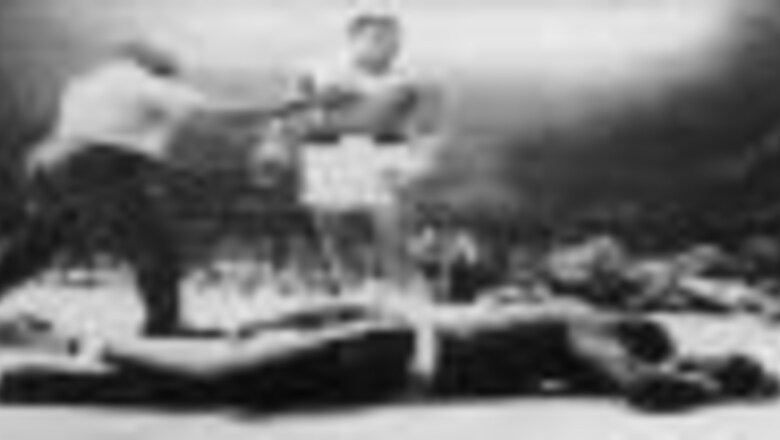
views
Name: Muhammad Ali
Country: United States of America
Date of birth: 1942-01-17
Birthplace: Louisville
Height: 188 cm
Weight: 100.0 kg
Categories: light-heavyweight (-81 kg), heavyweight
Olympic Games: (one medal - one gold), Light-heavyweight: First (1960)
World titles: World heavyweight champion: 1964-1971, 30/10/74-15/2/78, 15/9/78-1981, NABF heavyweight champion: 26/7/71-31/3/73, 10/9/73-1974.
Dancing butterfly, stinging bee
Call him arrogant, confident, or simply talented - but Cassius Clay's achievements can never be forgotten. "I am the greatest," he often proclaimed, earning him one of many nicknames, the "Louisville lip".
Clay's claim to greatness began to look credit worthy at the 1960 Olympic Games where he won heavyweight gold medal before turning pro and dominating the heavyweight division during two separate eras.
His self-styled attitude was cultivated from an early age and is known worldwide - both in and outside the ring. Since his bike was stolen as a child, Clay displayed his instinct when reporting a theft at the local police station: "When I find the guy who stole my bike I'm going to crush him," he said.
From that day the officer on duty, impressed with his attitude, went on to coach Clay until the Rome Olympic Games.
Amateur national titles in the light-heavyweight divisions were followed by the coveted Golden Gloves award in 1959 and 1960.
Following Rome, he eventually teamed up with coach Angelo Dundee, in February 1964, Clay won his first world heavyweight title against the great Sonny Liston, retaining it the following year in a rematch.
Floyd Patterson, the 1952 Olympic champion, was the first of eight unsuccessful challengers to this crown from November 1965 to March 1967, following which Clay publicly lent his support to the Black Muslims sect led by Elijah Muhammad, changed his name to Muhammad Ali and refused to support or take part in the Vietnam conflict.
Facing his greatest fight
This caused an outcry in politically-sensitive America. As punishment, the boxing Federation of New York stripped him of his title and suspended his licence. He was also sentenced to five years in prison,which he never served, and fined $10,000.
The man who "floated like a butterfly and stung like a bee" had had his wings clipped. In 1968-69 Ali did not fight, the following year announcing his retirement.
However, he returned months later and promptly lost to Joe Frazier in March, 1971. He won the vacant NBA world heavyweight title four months later and defended it five times before Ken Norton won a points decision in March 1973.
Ali regained that title only six months later in the rematch, defending it successfully against Frazier in January 1974 before taking the world heavyweight title from George Foreman in the infamous "rumble in the jungle" in Zaire.
Ali defended his crown 10 times until 1978 before suffering a shock defeat to Leon Spinks. Exactly six months later, he returned with a vengeance in the rematch with the former Olympic champion, and regained his crown in New Orleans.
In 1980 however, he was tempted back to the ring and made a successful defence of his crown against Larry Holmes. Before his final bout - a defeat to Trevor Berbick in December 1981 - Ali was showing increasing signs of being "punch drunk" and was diagnosed with Parkinson's disease.
A world ambassador and respected personality, Ali's lifestory was recently made into a Hollywood motion picture starring Will Smith.


















Comments
0 comment